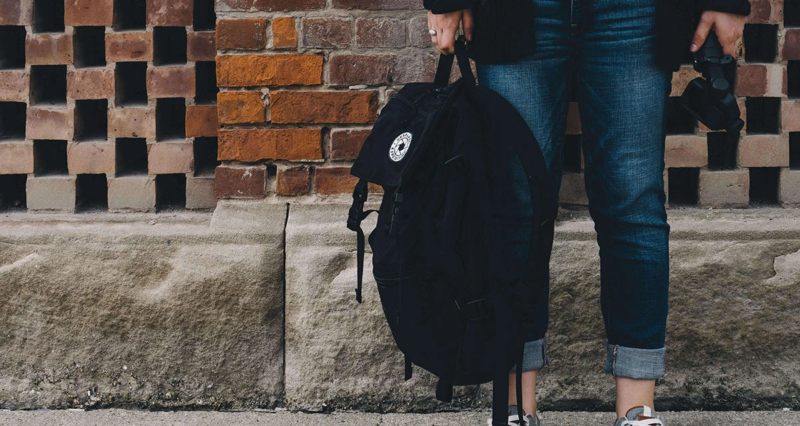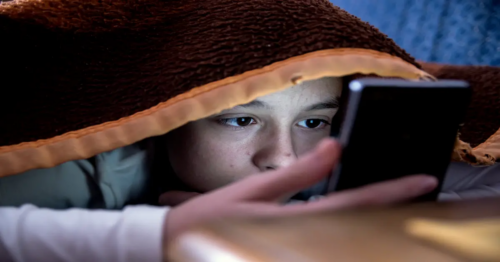
How to Talk About Tragedy & School Shootings
Written By: Charlie Health Editorial Team
December 1, 2021
5 min.
Kids and teens across the US are caught in the crosshairs of two deadly crises: rising rates of mental health issues and unrelenting gun violence. The trauma associated with both of these truths is immense and cannot be underestimated in its toll on young people’s sense of wellbeing. One of the most basic psychological needs in all human beings is a sense of safety. When this fundamental security is stripped away from the environment, it’s incredibly difficult to function, let alone thrive.
Learn more about our Clinical Review Process
Kids and teens across the US are caught in the crosshairs of two deadly crises: rising rates of mental health issues and unrelenting gun violence. The trauma associated with both of these truths is immense and cannot be underestimated in its toll on young people’s sense of wellbeing. One of the most basic psychological needs in all human beings is a sense of safety. When this fundamental security is stripped away from the environment, it’s incredibly difficult to function, let alone thrive.
This is why gun violence in schools––and the uniquely American prevalence of school shootings––is of particular concern for clinicians and parents of kids and teens struggling with their mental health. Every time news breaks of another school shooting, symptoms associated with mental health disorders can be exacerbated or triggered. And for young people who may not have previously experienced mental health issues, such news can serve as the catalyst for anxiety (as one example). With that, it’s important to be prepared to talk to your kids about tragic news generally, but also school shootings in particular. And of course, our team of clinicians and care providers at Charlie Health are available 24/7 to help you and your family if you feel you need a higher level of care.
How to talk about tragedy & school shootings
Prepare
Make sure you’ve spent time processing your own thoughts and emotions before you engage with your kids or teens. Of course, this is a non-linear and ongoing process for anyone, but making sure you have a plan of what you want to say (and how much you want to explain about the event) is critical. By giving yourself some time and space to reflect on your feelings, you’re also modeling well-rounded self-care and emotional maturity.
You may also want to prepare answers to questions that might come up (Why did this happen? Will this happen again? Am I safe at school?). And if you need help in either dealing with your own reactions or finding answers to hard questions, don’t hesitate to reach out to a licensed therapist or counselor. Professionals are here to help you and asking for help with taking care of your family is a sign of courage and strength, not weakness.
Have a sense of what the news is saying
Public tragedies such as school shootings have a tendency to stir up misinformation, making it even harder to help your kids navigate their emotions. Be firm about facts and encourage them to stay off of social media if it’s causing anxiety. It’s okay to turn the news off, especially if repeated exposure is making your teens feel worse.
Be honest…but confident
There’s nothing wrong with being vulnerable and open with your kids. In fact, it’s a great way to foster better communication long-term and to demonstrate the importance of healthy processing of emotions. But it’s also key that you help your kids feel settled at home; that you reassure them that their teachers and other school administrators have always done––and will continue to do––everything they can to keep the school safe.
Create space
The number one, most important thing you can do when talking to your family about violence and trauma is to allow them to share whatever they want, however much they want, whenever they want, with as little judgment as possible. Validating their emotions and caring for them in the ways that you know best can make the difference between acute and long-term effects of the event at hand (or one in the news). Don’t deny any fears or ignore any questions. Don’t downplay the facts or slip into toxic positivity. As a parent or loved one, the young people in your life look up to you for emotional strength and reinforcement. Living through (and with the constant threat of) gun violence in school in particular requires parental fortitude and empathy.
Pay attention
Recognize when your kid or teen might require a higher level of care. If symptoms of anxiety or depression, for example, begin to impact day-to-day functionality (such as refusing to go to school because they can’t get out of bed or being too anxious to interact with friends they used to spend time with) it may be time to seek out professional help. Substance abuse may also arise in older teens and young adults. Encourage the young people in your life to be open to asking for and receiving help, as well. Remind them that seeking mental health care is brave and an amazing investment in their long-term well-being.
Join the Charlie Health Library
Get mental health updates, research, insights, and resources directly to your inbox.
You can unsubscribe anytime.
Of course, parents and loved ones can tailor this advice based on the age of the kids in their lives. For teens and young adults though, taking their feelings, thoughts, and concerns seriously is one of the best ways to help them process violence, be it on the news or in their school or community. Finally, on the topic of violence and mental health: we want to stress that any person living with mental health issues is not more prone to violence than someone who isn’t dealing with those same issues. This is a very problematic stigma associated with people who have mental health disorders. At Charlie Health, we are committed to eradicating these types of stigma by providing accessible care to as many kids and families as possible. In addressing the youth mental health crisis through direct care, we can make it more normal to be open and honest about needing help. In this way, we hope to be part of the solution that’s so desperately needed to address both mental health rates in teens and the frequency of violence in schools.





